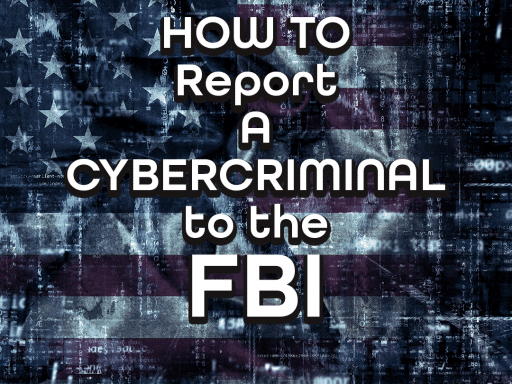Have you ever wondered if you can report sextortion directly to Interpol? Interpol’s mission is “To reduce the global impact of cybercrime and protect communities for a safer world.” However, as sextortion becomes an exponentially growing issue, many are questioning whether this organization has the capability to effectively combat these cybercriminals and live up to its mission.
What is Interpol, and How Does It Operate?
Interpol, short for the International Crime Police Organization, is an intergovernmental organization that facilitates cross-border police cooperation among its 196 member nations(1). Their operations are centered around four global programs:
- Cybercrime
- Counter-Terrorism
- Organized and Emerging Crime
- Financial Crime and Anti-Corruption
Its primary mission is to help law enforcement agencies from different countries work together to disrupt transnational crime and help nations build up their internal capacity to do this work themselves. Their activities include:
- Facilitating the exchange of data on cybercrime across borders
- Coordinating law enforcement operations to track down global cybercriminal organizations
- Conducting professional training for law enforcement at different worldwide agencies
- Developing new technologies to help member countries fight cybercrime
- Acting as a coordination point between countries to work together internationally
Can an Individual Report A Cybercrime Directly To Interpol?
No, victims of cybercrimes like sextortion and cyber blackmail cannot report their cases directly to Interpol. The organization’s sole focus is facilitating communication between national police agencies to solve international crimes. Even if the crime you want to report has an international element, all criminal activity must first be reported to your local police or national law enforcement agency. Interpol does not have the authority to directly investigate cases or arrest criminals.

How Does Interpol Help with Sextortion?
Stopping cybercrime depends on complex legal processes, coordination, and negotiation between countries. The most challenging part is that in recent years, cybercriminal activity has been carried out by organized criminal groups with no respect for laws or borders.
That is why Interpol plays a critical role in coordinating cross-border investigations. When a case involves perpetrators and victims located in different countries, Interpol acts as a central point of contact, facilitating information sharing and evidence gathering among the involved law enforcement agencies.
In 2024, Interpol’s crime operation HAECHI V targeted seven types of cybercrimes, including phishing, romance scams, and sextortion. This operation was a coordinated effort involving law enforcement from 40 countries and lead to a record 5,500 arrests and seizures worth over 400 million USD(2).
“The borderless nature of cybercrime means international police cooperation is essential, and the success of this operation supported by INTERPOL shows what results can be achieved when countries work together. It’s only through united efforts that we can make the real and digital worlds safer.”
INTERPOL Secretary General Valdecy Urquiza
Where Should Victims Of Sextortion Seek Assistance Instead?
If you are a victim of sextortion, online blackmail, or any other type of cyber extortion, you should report the crime to your local law enforcement agency. U.S. citizens should file a report with the FBI’s IC3. You’ll need to provide as much detail as possible about the incident. Be sure to preserve any evidence, such as screenshots of messages or emails for when you file your report.
If you’re doubting whether this will help you solve the real problem, take a moment to read our resource, What Can the Police Do About Blackmail?
How Digital Forensics Corp. Helps Fight Cybercrime.
At Digital Forensics Corp., we’ve been assisting victims of cybercrimes for over a decade, providing expert digital forensics consulting and services such as forensic analysis, system security setup, and responsive action for different types of cyber extortion. We work closely with our clients to identify and pursue perpetrators wherever they may be.
Our forensics investigators are experts in identifying financial discrepancies, IP tracking, and fraud detection. This enables us to track down the perpetrators with the latest cyber technology and digital forensic techniques to make the threats stop.
If you have been threatened with public exposure of your intimate photos, contact our Sextortion Helpline. We will review the criminal’s digital footprint to identify them and mitigate the risk of your exposure.
Resources:
- https://www.interpol.int/en/What-you-can-do/If-you-need-help
- https://humanrights-lawyer.com/blog/interpol-most-wanted/#:~:text=Interpol’s%20Wanted%20Person%20List%20is,according%20to%20each%20country’s%20laws.
DISCLAIMER: THIS POST IS FOR INFORMATIONAL PURPOSES ONLY AND IS NOT TO BE CONSIDERED LEGAL ADVICE ON ANY SUBJECT MATTER. DIGITAL FORENSICS CORP. IS NOT A LAWFIRM AND DOES NOT PROVIDE LEGAL ADVICE OR SERVICES. By viewing posts, the reader understands there is no attorney-client relationship, the post should not be used as a substitute for legal advice from a licensed professional attorney, and readers are urged to consult their own legal counsel on any specific legal questions concerning a specific situation.






